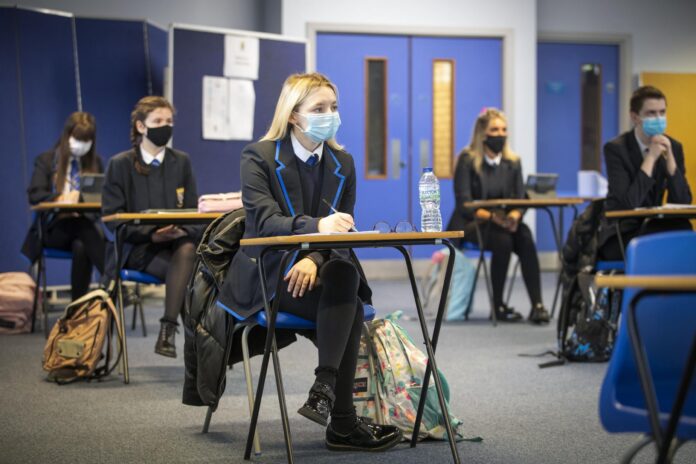The government will pay for an extra 100 million hours of tuition under plans to repair the damage done to eduction by Covid.
Following months of school closures due to the pandemic, £1.4bn will be spent on 15-hour tutoring courses for disadvantaged pupils as well as an expansion of an existing fund for helping 16 to 19-year-olds with core subjects.
As part of the recovery package, 17 and 18-year-old students will be given the option to repeat their final year if they have been badly affected, but plans to increase the length of the school day have been shelved due to the cost.
£400 million will help give early years practitioners and 500,000 school teachers across the country training and support, and schools and colleges will be funded to give some year 13 students the option to repeat their final year.
The government’s own education tsar has already warned that “more will be needed”.
Paul Whiteman, general secretary of National Association of Head Teachers, which represents leaders in the majority of schools, said:
“After weeks of talking big and building expectation for education recovery this announcement only confirms the government’s lack of ambition for education. It’s a damp squib – some focus in a couple of the right areas is simply not enough.
“The funding announced to back these plans is paltry compared to the amounts other countries have invested, or even compared to government spending on business recovery measures during the pandemic.
“Education recovery cannot be done on the cheap. The question about how much should be spent on recovery is best answered with ‘whatever it costs’, such is the importance of investing in the future wellbeing of our young people and the future prosperity of our nation.
“The government had the opportunity here to invest in the architecture of education; instead it has chosen to paper over the cracks. As is often the case, young people seem to be low on the government priority list.
“That said, we are relieved to see that some of the more headline grabbing measures previously suggested have been shelved for now. Extending the school day in particular had the potential to negatively impact on pupils’ mental health, reduce family time and leave less time for extra-curricular activities. Children’s happiness and wellbeing should be prioritised as well as their education, or we risk doing more harm than good.
“Schools have already gone to incredible lengths in order to protect and care for pupils since March 2020, and to help them recover since they returned to school earlier this year. Fortunately, education professionals don’t wait for the government to tell them how to do their jobs and have been working on recovery all along, but real support for that effort is badly lacking. Schools will be left uninspired by this.”







